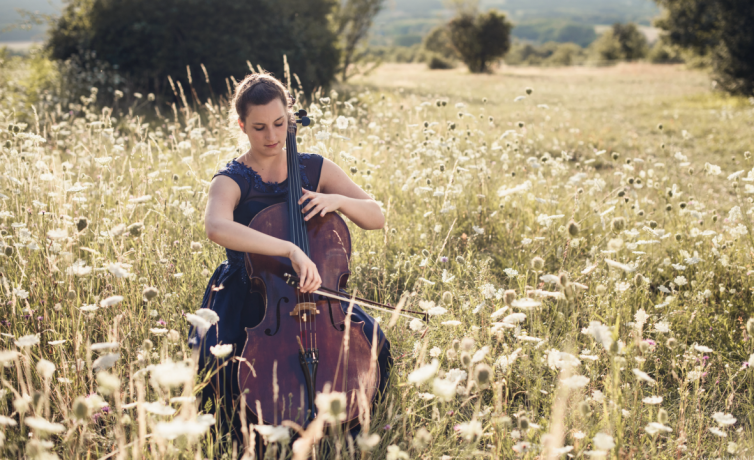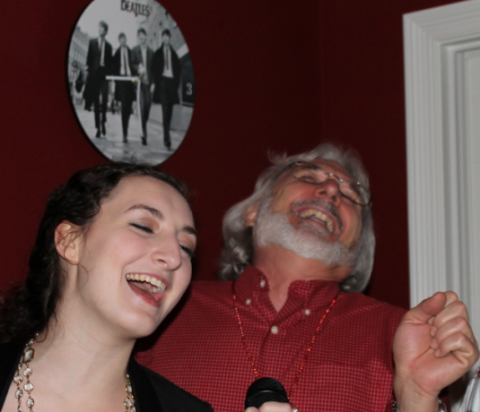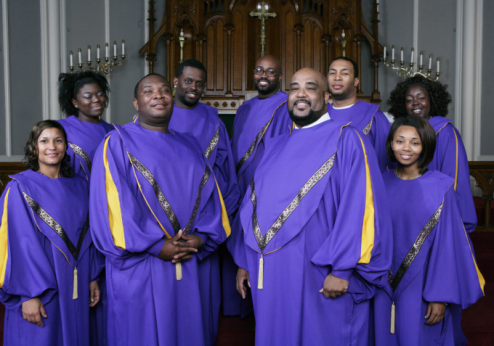Your personal music search space.
Augment your understanding of music.

______________________________________________________________________________

YMUSIC SEARCH ENGINE
MUSIC AND WELLBEING
Music is more than a casual leisure, an art or the new way to increase the benefits of a company. It is all of that and even more. The music industry is a rich ecosystem in which everyone and everything has a specific place. From the composer to the listener, from psychology to spirituality, from art to science, get insights on each field of music, learning about craft or history, about human behavior or consciousness. A place is also given to ethical questions.
MUSICAL CULTURE IN ITS VARIOUS ASPECTS


Independently of any musical context, take one moment to test some new tools that can foster active listening! Try the YMusic search engine, your free personal assistant (it includes musical criteria to select music), and, whoever you are, get the most out of them.
Is music powerful enough to be a force of change in terms of health?
Active music listening to enhance wellbeing
Artists sometimes testify that musical practice helped them to resolve all their problems, especially during childhood and adolescence. For a lot of them, who never had any particular problem, it always was a permanent source of joy and happiness. And for those who introduced their family to music, when they saw the smiles on the faces of their relatives when they gave their first concerts, it all was about love, family and belonging.
These natural links between music and wellbeing may explain why music therapy is, today, so popular. Music therapy can be defined as a systematic intervention wherein music therapists help their clients to achieve or recover health through musical experiences that can lead to a dynamic and strong change at the psychological and the emotional level. They pull listeners into active listening. There are a lot of different ways to listen to music: all paths lead to music. Amongst them, active listening is especially stimulating, as the listener is investing time and energy in order to make a meaning out of music.
Addressing the causes of disease to reduce pain with music
Music can be a good tool and a motivator that helps to reach targets related to health. For instance, it can help sustain the functional movements of people that have Parkinson’s disease. How is it possible? When they work to reduce the pain of a listener, music therapists are not looking at the symptoms, like rigid muscles, but they are addressing the psychological causes of pain, so that music can contribute to changing the mechanisms that come into play, when the person who suffers from the disease is trying to move, for instance. Music therapy is, at the elementary level, easy to explain: it is using music to heal people. But how? Sometimes it is about healing people with music by getting them to take less medication, by adopting a more inclusive approach so that the patient can get more appropriate treatments to reach a higher state of well-being.
Music can thus be combined with alternative pain management treatments like acupuncture. It is becoming more common as medecine is moving away from just treating symptoms to adopting an integrative approach to persons who have health concerns. And as music is incorporated into people’s day-to-day lives, using it in the framework of well-being does not seem strange. Also, ordinary music listeners, that have no particular problem, have used it to express something about themselves for ages: they listen to sad songs after a breakup in order to manage their emotions, to quick rhythms when they want to boost them up, etc. The benefits of music are innumerable and long lasting.

Find new music that you could love on the basis of the characteristics inherent to music! Try the YMusic search engine, your free personal assistant (it includes musical criteria to select music), and find out more about the elementary principles that govern the musical art.
What is art and why is music presented as an art?
Nearly everyone knows more or less when art appeared: around 20 000 years ago, when images were made in the caves of Lascaux. But why did art appear? Because human beings once became aware that something was worthy of representation, outside, as it happened in Lascaux, or inside their mind, like splashed-ink paintings made by Chinese painter Wang Mo during the 8th century BCE show it.
Moreover, when did human beings become conscious of doing art? Of course, there is no reflection related to artistic production during the prehistoric era. In early civilizations like Ancient Greece, Egypt or Mesopotamia, thoughts related to art were part of philosophy, and Pythagoras, for instance, formulated considerations linking aesthetics and beauty six centuries BCE, followed by Plato one century later.
Generally, musical art can be defined quite formally as a conscious product of human activity, whose target is to shape and communicate sounds in a harmonious way. Let us notice that music creation has a special place amongst the various arts, as it is never a representation of something that existed in the world beforehand: it is not what ancient Greeks called a ‘mimesis’. That is why it is the most abstract of the arts.
Musical art and the meeting of listeners’ individual emotions
Why do people care about the beauty of the music? Are certain sorts of aesthetic categories embedded in the human brain as some researchers in the field of music neuroscience say? About beauty, one thing is considered as certain by a a high number of persons: first, people recognize beauty in a specific work of art and then; then, they ask questions about why they recognize beauty in it. Listeners perceive the physical elements of sounds and find some of them especially attractive, partly in relationship with their personal emotions. That is why, as the proverb says, there is no accounting for taste. Curation and musical criticism may present an interest, however they never replace either a personal experience of music, or an individual attempt to understand the content of a piece of music.
Different criteria are currently taken into account to explain why people prefer specific types of music: the characteristics of a piece of music itself (like timbre, tempo or tonality), the cultural conventions related to music (like genres) and the characteristics of the listeners (elementary data like location, age and gender currently being the only ones to be exploited). Yet these criteria were not really articulated within the framework of a coherent musical theory. Now one can find these fundamental elements in the new music theory developed in relationship with the YMusic search engine, that helps listeners to understand better their musical taste and introduces them to elementary musical analysis. What is the impact of such a theory? It makes, to some extent, elementary musical analysis accessible to each unique music listener who takes some time to understand a specific musical content.
Musical art to re-enchant the inner world of each individual listener
Discover more rapidly new music that is really resonant with your current or usual emotional states! Try the YMusic search engine, your free personal assistant (it includes musical criteria to select music), and acquire new musical memories.
Developing musical expertise to enhance human well-being
Why is music so powerful and enjoyable? Why can music open up the mind in ways that words cannot? Usual scientific research cannot capture all that happens in the musical experience, however it is good that music neuroscience tries to understand it: in fact, music, like all forms of human thinking, is an embodied process and it always happen in specific contexts that are interesting to study to develop new sorts of musical expertises.
This expertise, which is the fruitful result of thinking, can be shared in practical forms with patients who, most of the time, cannot think about what they do. It is the case for instance when someone who has Parkinson’s disease or after a stroke cannot move or speak easily. Music can allow such a person to walk: when music reaches the brain, the brain naturally invites the person to move in rhythm. Independently of any disease, that process is so spontaneous that most human cultures have structured the way to move with the music, inventing various forms of dance.
Music that is in resonance with individual emotional states
Music is very old: human beings were making music out of animal bones 40 000 years BCE. Isn’t this a curious behavior and a luxury, when a race has to survive? In fact it was: as it was then a simple acoustic vibration in the air, music was the first form of abstraction, and abstraction is a luxury. Music is inherently human, be it made or heard. It is the auditory track of a specific human activity. And that track is specific to each person: each person has individual music memories, happy ones as well as sad ones. Actually, listeners are always seeking music that is resonant with their emotional states. That resonance is one of the things they enjoy most in music.
Unfortunately, to this day, online music services do not treat music in a sense that can help listeners to reach that target easily. Too often, listeners must rely on what we could call their ‘good old musical souvenirs’: the first record they bought or the song they shared with their first love. As music is generally classified online with the help of tags, services literally simply stick a label on existing music exactly as museum curators do. It is useful, but it is not enough. In fact, a piece of music is not a relic or a fossil: it is made to be heard. Yet millions of songs on the internet are never heard. What about music curation? It is often useful too, yet is is, most of the time, partial and related to business interests. Curation is more about trends than individual taste and the resulting loss of time for listeners who do not want to be limited to a specific musical genre can be substantial.
Music to empower individual movements, emotions and thoughts

Independently of any medical context and beyond any music style, discover what kind of music can bring you some support in day-to-day life! Try the YMusic search engine, your free personal assistant (it includes musical criteria to select music), and let your brain and your body engage with the music.
Music and inner freedom: the case of African American Spirituals
Calling for deliverance while nurturing brain coherence
The question of how African American Spiritual songs can be, literally, spiritual, is an often-discussed question. In fact, African slaves, most of the time forced to convert to Christianity, were not permitted to express themselves in ways that were meaningful to them at the spiritual level. Christian religious services were the only moments when they could express emotions in public, singing and clapping their hands. However they were not allowed to have drums or to dance. It was much later that instruments of African origin, such as the banjar, a precursor of the banjo, were imported to America.
During their captivity, slaves who sang spirituals had a heart full of sadness, and some could feel each musical tone of each song as a cry for deliverance. Among them, there was Frederick Douglass, a former slave who later became a writer. Other ancient slaves reread their individual history, and they attested that music was really an important source of support for them in their individual and social day-to-day life before their liberation. Why? Music impacts on the brain in a positive way. More precisely, different kinds of sounds can have an impact on the brain in different ways. This is obvious when a choir is performing a song: the various choristers sing their specific part and when they have to listen to the part of others, they must synthesize different levels of tonal cognition in order to understand how the sound as a whole is evolving.
Searching for a better place for the brain itself
Singing increases brain coherence and allows singers to think at different levels when they are busy with singing. For African American slaves, brain activity was about searching for a better and a higher place, a safer place for the brain itself. When music is created in such extreme conditions, one could say that the humans who produce it become the music itself or become music themselves, as they are merging with the music.
That is actually what neuroplasticity is about: internal evolution in relationship with outdoor conditions. And more plasticity leads to adaptation and identification of danger. More generally, it helps to do things better and faster while it decreases anxiety. It also affects how one eats and metabolizes food, how one can read and learn, etc. In one word, as the brain is engaged in managing various activities of the body, each exterior element which interacts with the brain has its importance, and this is the case for music for instance. When people use their brain better, they use their body in more efficient ways and, conversely, when they reinforce their body, they help to increase the strength of their brain in terms of control.
Music and inner freedom: the case of African American Spirituals